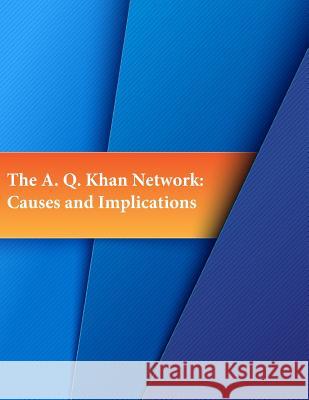The A. Q. Khan Network: Causes and Implications » książka
The A. Q. Khan Network: Causes and Implications
ISBN-13: 9781530399932 / Angielski / Miękka / 2016 / 110 str.
The A. Q. Khan nuclear supplier network constitutes the most severe loss of control over nuclear technology ever. For the first time in history all of the keys to a nuclear weapon-the supplier networks, the material, the enrichment technology, and the warhead designs-were outside of state oversight and control. This book demonstrates that Khan's nuclear enterprise evolved out of a portion of the Pakistani procurement network of the 1970s and 1980s. It presents new information on how the Pakistani state organized, managed, and oversaw its nuclear weapons laboratories. This book provides extensive documentation of command and control challenges faced by Pakistan and argues that Khan was largely a rogue actor outside of state oversight. The A. Q. Khan affair refutes more optimistic theories about the effects of nuclear proliferation. This case study indicates that states have a difficult time balancing an abstract notion of safety against pressing needs for organizational speed and flexibility. This work enumerates enabling institutional factors in Pakistan, which allowed Khan's enterprise to continue and flourish, and which might also be generalizable to other states of proliferation concern.











